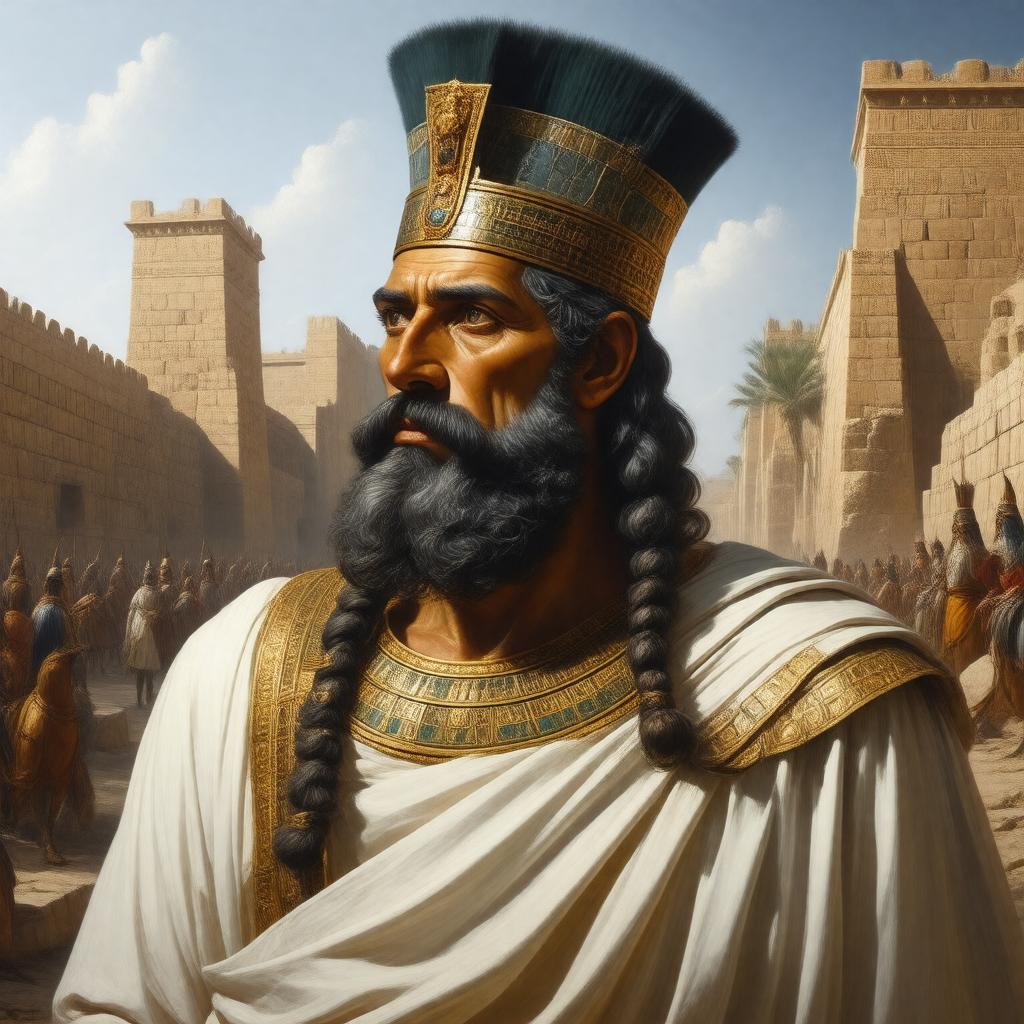Prompt
"Generate an image of Nebuchadnezzar II, King of the Neo-Babylonian Empire, in a realistic and regal style, depicting him as a powerful and authoritative figure, dressed in traditional Babylonian attire, with a backdrop of the ancient city of Babylon, including the Ishtar Gate and the Hanging Gardens, during the Iron Age, circa 600 BC."

